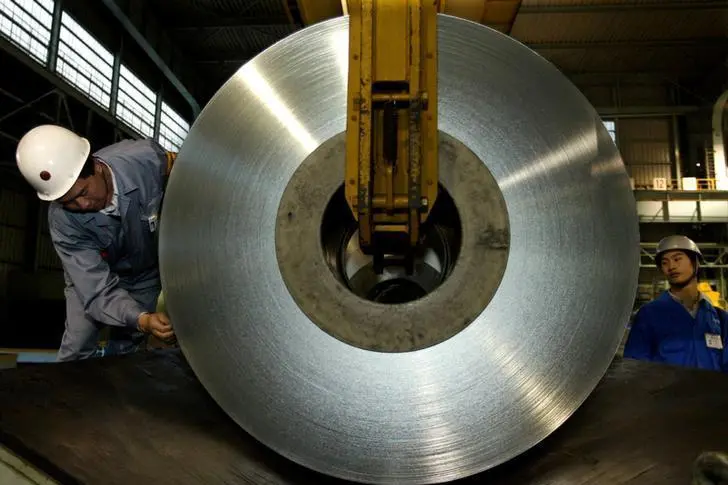PHOTO
LONDON - Tin prices soared on Monday to their highest in nearly two months as news of a mining ban in Myanmar, a major producer of the soldering metal, fuelled worries about shortages.
Benchmark tin on the London Metal Exchange traded up 7.6% at $26,745 a tonne in official rings after reaching $27,705, its highest since Feb. 21.
Myanmar's Wa state will suspend mining resources exploration from August, according to an information official from the United Wa State Army.
Myanmar has the world's third largest reserves of tin, according to the U.S. Geological Survey. It accounted for 77% of China's tin ore imports in 2022, Chinese customs data showed.
"There were problems in Myanmar in January and February and there was a dip in Chinese production. Supplies have been tight," said Jeremy Pearce at the International Tin Association.
The ITA estimates China accounted for about 47% or 181,000 tonnes of tin consumption last year, of which 47,700 or 26% came from Myanmar in the form of tin in concentrate.
In January and February this year, China imported approximately 5,800 tonnes of tin in concentrate from Myanmar, down 55% from a year earlier, Pearce said.
Most of Myanmar's tin concentrate comes from mines in Wa state, which wants to protect its mining resources.
"The ban on mining will undoubtedly make the already tight supply of tin mines even tighter," broker Xinhu Futures was quoted by state-run Shanghai Securities News as saying.
However, it is unclear whether the ban will be implemented as "this is not the first time such notifications have been made" and "the main functional departments of Wa state have not received such specific notifications", the report by Xinhu said, citing sources.
On the technical front, Wang Tao, a Reuters market analyst, said tin could break through resistance at $27,461 and head towards $31,000.
In other metals, copper slipped 0.4% to $8,982 a tonne, aluminium fell 0.6% to $2,370, zinc lost 0.8% to $2,833, lead ceded 2.9% to $2,106 and nickel advanced 1.5% to $24,500.
Traders said talk of problems with supplies from top producer Indonesia had boosted prices.
(Reporting by Pratima Desai, Mai Nguyen in Hanoi and Siyi Liu in Beijing; editing by Jason Neely and Mark Heinrich)





















